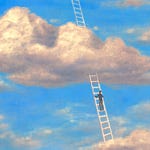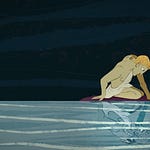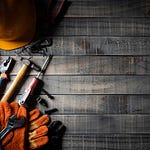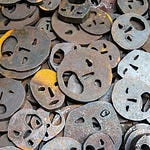Amid a new Israel-Gaza war, the world reeling from unprecedented atrocities against Israeli civilians, former Age editor Michael Gawenda reflects on his life as a Jew — the title of his astonishing new book— and on what he sees as a troubling shift towards activist journalism. During the last Israel-Gaza war two years ago, more than 400 Australian journalists and writers petitioned the media to “do better on Palestine,” calling on editors to stop promoting “discredited” spokespersons, “tired narratives” and “both siderism” that “equates the victims of a military occupation with its instigators”. Gawenda says the events of recent days makes the petitioners’ stance, flawed to begin with, appear “even worse.” He thinks these journalists should publicly explain why they signed the petition.
In this podcast interview we also discuss his time as editor at The Age and whether he’d be able to attain such a position if he were starting his career now as “the Jew I have become” — namely, a Jew deeply attached to Israel, one who refuses to denounce Zionism in order to gain admission to the political left. Other Jews are more willing to comply; Gawenda describes them as “anxious Jews”; Jews fundamentally anxious about being Jewish. (They’re hilariously depicted in Howard Jacobson’s The Finkler Question as self-declared “ASHamed Jews.”)
One such “anxious Jew,” in Gawenda’s view, is Louise Adler, his long-time colleague, publisher and former friend. Adler signed the journalists’ petition. Earlier this year she came under fire as director of Adelaide Writers’ Week for inviting Palestinian writers to discuss their experiences of occupation and dispossession to the exclusion of any Israeli voices. Two of the featured writers were accused of peddling anti-Semitic tropes; one had referred to Ukraine’s (Jewish) president, Volodymyr Zelenskyy, as a “depraved Zionist.” Gawenda’s book opens with an account of his friendship with Adler ending “suddenly and fiercely” over Israel. We discuss why he took the extraordinary step of publicly airing this personal falling out.
And we talk about Gawenda’s childhood as the son of Holocaust survivors, the influence of his socialist, non-Zionist youth movement and whether he sees hope of a reconciliation between the Jews and the left. On the latter, he’s optimistic.
In the aftermath of one of the darkest days for the Jewish people since the Holocaust, I, for one, will take any hope on offer.
Sources: My Life As A Jew, Michael Gawenda, published October 3 (Scribe)














Share this post